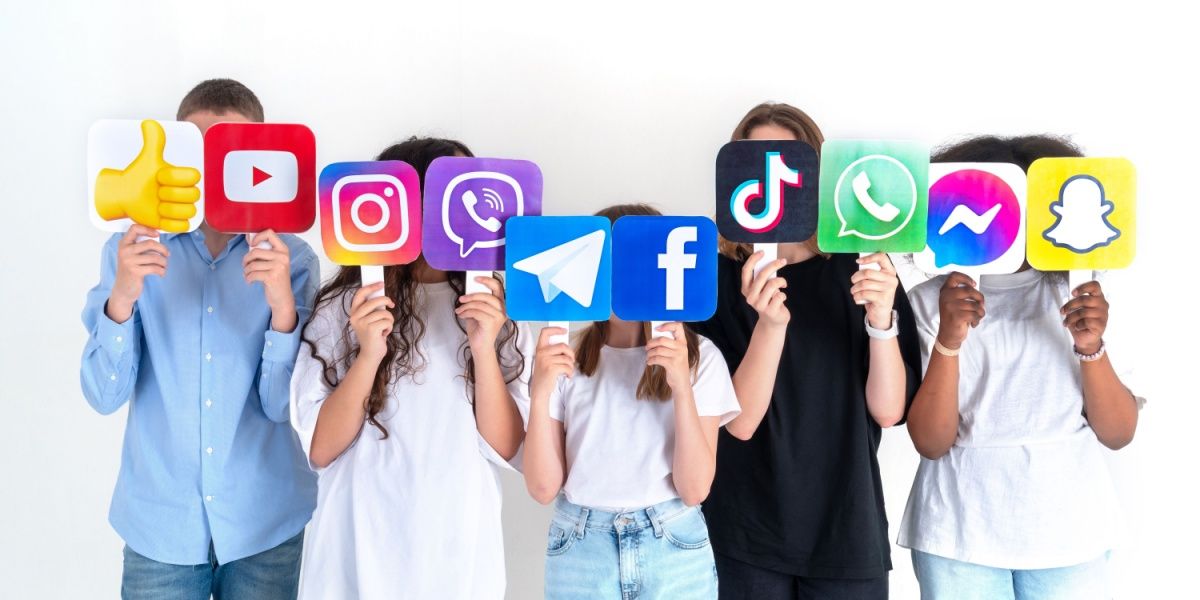In our hyperconnected world, social media platforms have become integral to daily life, offering instant access to news, entertainment, and social interaction. However, this constant connectivity can lead to problematic social media use (PSMU), a behavioral pattern resembling addiction.
A recent study found that individuals with PSMU are more likely to fall victim to fake news. [1] For individuals in recovery, understanding the link between PSMU and the susceptibility to misinformation is crucial for maintaining mental well-being and making informed decisions.

What is social media addiction?
Studies revealed that Americans spend up to 17 hours a day on social media, a behavior considered social media addiction, since it triggers brain chemistry similar to other behavioral addictions. [2]
PSMU refers to excessive engagement with social media platforms that disrupts daily functioning. While not officially classified as an addiction, PSMU shares characteristics with recognized behavioral addictions, including:
- Compulsive use: An uncontrollable urge to check social media.
- Withdrawal symptoms: Feelings of anxiety or irritability when unable to access platforms.
- Tolerance: Needing increased time on social media to achieve satisfaction.
- Negative consequences: Detrimental effects on personal, professional, or academic life.
A meta-analysis encompassing over 34,000 individuals across 32 countries found that approximately 5% of social media users exhibit signs of PSMU. This prevalence underscores the importance of recognizing and addressing PSMU, especially among vulnerable populations. [2]
The link between social media addiction and belief in misinformation
A recent study published in PLOS ONE explored the relationship between PSMU and susceptibility to misinformation. Researchers conducted an online experiment with 189 participants aged 18 to 26, presenting them with a mix of real and fake news stories formatted as social media posts. [1]
Key findings:
- Increased belief in fake news: Individuals with higher levels of PSMU were more likely to believe in and engage with fake news content. [1][3]
- Cognitive impulsivity: Researchers found a significant correlation between PSMU and cognitive impulsivity (the propensity to make quick decisions without adequately evaluating evidence or considering consequences), which in turn was linked to greater susceptibility to misinformation.
- Distress and impairment: Participants experiencing distress and impairment due to PSMU showed a heightened tendency to believe in fake news. [1][4]
These findings suggest that the compulsive nature of PSMU may impair critical thinking abilities, making individuals more vulnerable to accepting false information as truth. [1]
Psychological mechanisms behind the connection
Several psychological factors contribute to the relationship between PSMU and belief in misinformation:
- Impulsivity: PSMU is associated with increased impulsivity, leading to hasty judgments without thorough evaluation of information.
- Social reward seeking: The desire for social validation can drive individuals to share sensational content without verifying its accuracy, perpetuating the spread of misinformation.
- Cognitive biases: Biases such as confirmation bias (favoring information that confirms existing beliefs) and the illusory truth effect (believing information to be true after repeated exposure) can skew perception and acceptance of false information.
- Cognitive and information overload: Constant streams of content weaken our ability to critically analyze or reflect, leading to decision fatigue.
- Confirmation bias and filter bubbles: Social media algorithms curate content based on user preferences, creating filter bubbles that reinforce existing beliefs, regardless of their accuracy.
- Emotional reasoning and fear-based engagement: Many viral posts thrive on fear, anger, or outrage—emotions that impair critical thinking and foster emotional reasoning (believing something is true because it feels true). Distress symptoms linked with PSMU can make users more reactive, emotionally dysregulated, and prone to latching onto emotionally validating misinformation. [1]
In summary, the combination of impulsivity, social validation loops, cognitive overload, and emotional reactivity makes users with high PSMU particularly vulnerable to misinformation. Their decision-making becomes less deliberate, more emotionally charged, and heavily influenced by social feedback and algorithmic exposure.
Over time, this pattern can erode judgment, distort beliefs, and undermine real-world behavior, from voting choices to health decisions. Understanding these mechanisms is vital for developing strategies to mitigate the influence of PSMU on misinformation beliefs.
Consequences of believing and sharing fake news
Engaging with and disseminating fake news can have far-reaching implications:
- Personal impact: Belief in misinformation can lead to poor decision-making, affecting health, finances, and relationships.
- Social consequences: Sharing false information can damage credibility and trust within personal and professional networks.
- Societal effects: The widespread circulation of fake news can influence public opinion, disrupt democratic processes, and incite social unrest.
Recognizing these consequences emphasizes the importance of critical engagement with information encountered on social media.
Protecting yourself: Strategies for digital literacy and managing social media habits
Enhanced digital literacy and better management of social media use help individuals to safeguard against the influence of PSMU and misinformation.
To enhance digital literacy:
- Verify sources: Cross-check information with reputable news outlets and fact-checking organizations, including factcheck.org, politifact, and mediabiasfactcheck.
- Be skeptical of sensationalism: Question headlines and stories that evoke strong emotional reactions.
- Educate yourself: Engage with free resources that improve media literacy skills, such as the Stanford History Education Group’s Civic Online Reasoning curriculum and the News Literacy Project’s Checkology platform.
To manage social media use:
- Set boundaries: Allocate specific times for social media use to prevent compulsive checking.
- Use monitoring tools: Employ apps or device settings that track and limit screen time. Most smartphones have free built-in options, such as the Screen Time app on iOS and the Digital Wellbeing & Parental Controls app on Android. Third-party free apps include Forest, One Sec, ActionDash, and StayFree.
- Seek support: Connect with support groups or professionals to address PSMU and develop healthier habits, for example, through cognitive behavioral therapy.
Implementing these strategies can empower individuals to navigate the digital landscape more mindfully, reducing the risk of falling prey to misinformation.
Conclusion
For those in recovery, awareness of the interplay between social media use and misinformation is a critical component of maintaining mental health and making informed choices. By understanding the psychological underpinnings of PSMU and adopting proactive measures to enhance digital literacy and manage online habits, individuals can build resilience against the pervasive influence of fake news in the digital age.



-blog-detail.jpg?v=1738677671)
